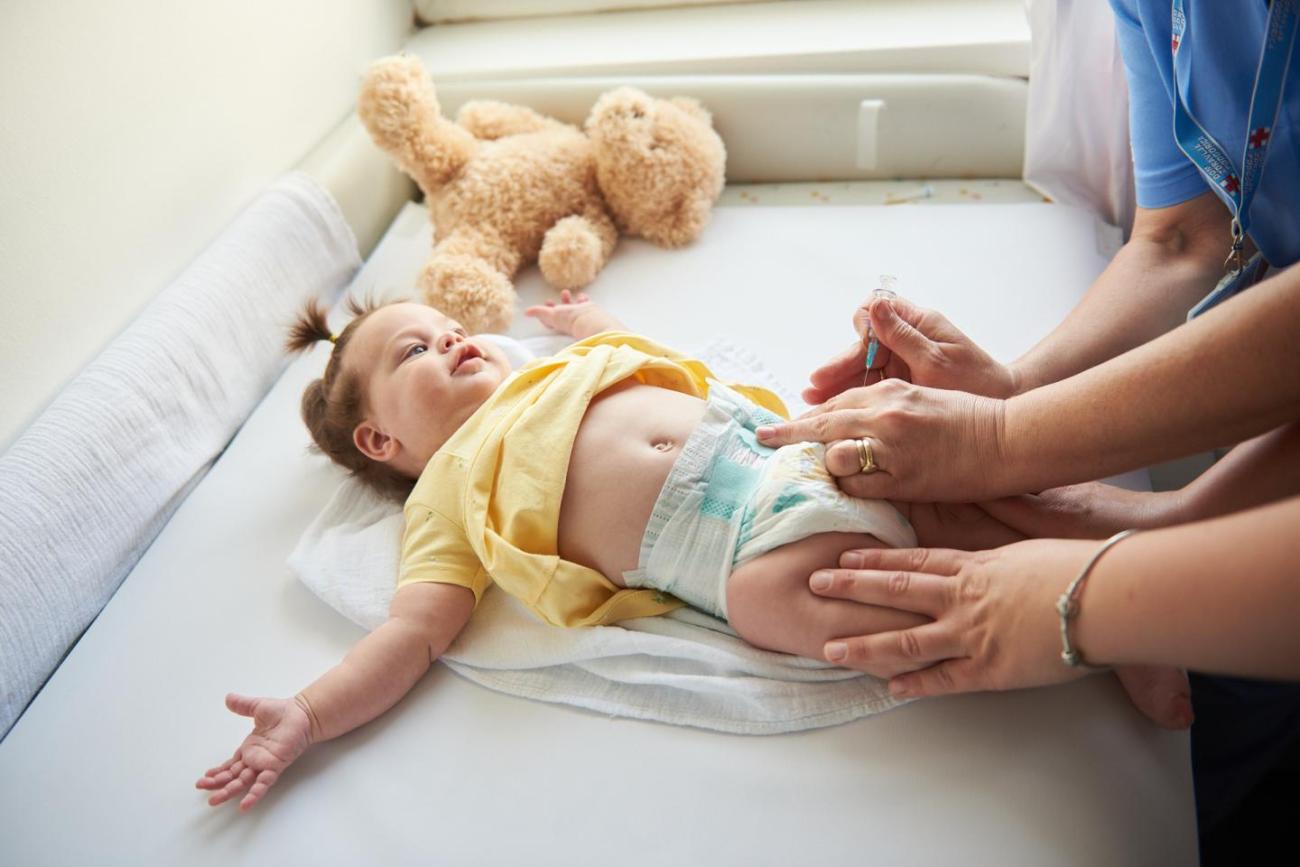Measles, mumps and rubella immunization urgent for the youngest ones in Montenegro

The WHO, UNICEF and the Institute for Public Health: We must not allow one health emergency to lead to another.
Podgorica, 25 February 2022 – By 1 February, all children born in 2020 should have received the first dose of the vaccine against measles, mumps and rubella, but in fact only 12% of the estimated 7,086 children have received it. Low immunization rates are also recorded for children born in 2019: just 34% of them have so far received their first dose of the measles/mumps/rubella vaccine. This means that the majority of Montenegro’s youngest children are at risk of hospitalization or even death in case a measles epidemic breaks out.
The WHO, UNICEF and the Institute for Public Health are calling on all parents to check whether their children have missed the MMR or any other vaccinations and, if so, to urgently have them vaccinated. Our message is that we must not allow one health emergency to lead to another, as declining immunization rates lead to only one thing – outbreaks among the most vulnerable. This time it could be measles, and would mostly appear among children.
“Measles vaccinations prevented over 23 million deaths worldwide between 2000 and 2018. Let’s do what is best for our children – follow the routine immunizations to protect our own and our neighbours’ children,” said UNICEF Montenegro Representative Juan Santander
To support children’s routine immunization during the pandemic in Montenegro, UNICEF has provided training for health workers, technical expertise for updating the protocols according to the highest international standards and support for renovating equipment in health centres.
With support from UNICEF and the EU, the Institute for Public Health is leading a national campaign to urgently increase the measles immunization coverage rate in Montenegro. The Institute for Public Health has initiated a series of actions aimed at supporting paediatricians in health centres and promoting MMR immunization. One of the objectives is raising the awareness of parents about the risks of delayed vaccination against measles, mumps and rubella so that they can make informed decisions to protect children and provide them with a safe and healthy childhood.
“I am calling upon all parents to resolve all dilemmas about the MMR vaccine with paediatricians. The Institute for Public Health is also available to clarify any dilemmas in relation to this vaccine,” said Dr Igor Galić, Director of the Institute for Public Health
According to the WHO, many countries are still reporting disruptions to their routine immunization services due to the COVID-19 pandemic, paving the way for future outbreaks and putting at risk decades of progress.
“The WHO strongly supports the efforts of the national authorities of Montenegro and our partners to ensure that every child fully benefits from the protection that vaccines offer,” said Dr Mina Brajović, Head of the WHO Country Office in Montenegro
The WHO is working with the government to strengthen routine immunization services and to ensure catch-up for all those who have missed any routine vaccination doses. At the same time we must be on the alert for any signs of a disease outbreak so that we can act quickly to stop its spread, Dr Brajovic highlighted.
Seventy-eight percent of citizens of Montenegro think that children should be vaccinated against measles, mumps and rubella, according to Ipsos research from November last year.
The WHO, UNICEF and the IPH remind that vaccines are among the greatest achievements of modern public health. From the end of the 18th century until today, they have been preventing the outbreak of numerous infectious diseases and have saved millions of lives. Smallpox, which killed 300 million people during the 20th century alone, was successfully eradicated in 1979 thanks to the introduction of a safe and effective vaccine. Polio – a dangerous disease that has killed millions and paralysed or disabled millions – is now, thanks to vaccines, a dangerous endemic disease in just two countries – Pakistan and Afghanistan – and is well on the way to being finally eradicated from the face of the Earth. Mother and newborn tetanus, which is fatal for newborns, has, thanks to immunization, been almost completely eliminated worldwide, remaining in only 12 countries as of December 2020.

